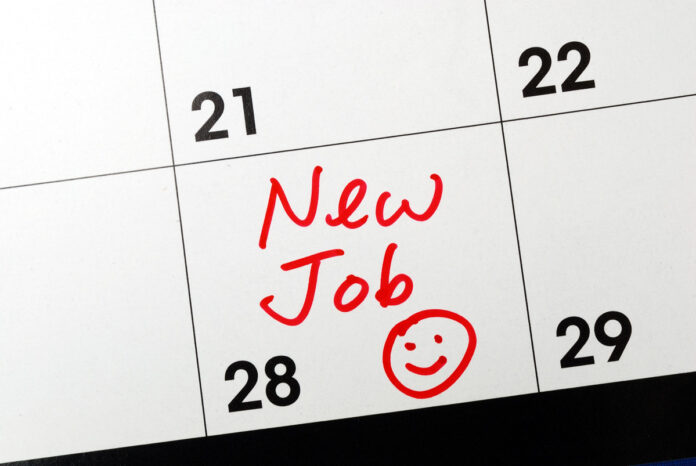When you first come to a new work environment, everything is new and unknown. Facing the unfamiliar colleague relationship, unfamiliar work process and tasks, you will encounter brand new opportunities and challenges at the same time. At this point, many people choose to do a lot of preparation to ease their anxiety, which is indeed the safest way. So, what are the effective preparations indeed? That’s what I want to talk about next.
1. Get to Know the New Company

Take the time to learn as much as you can about your new employer, their product line, corporate philosophy and culture. This is where you need to grow in the long run, and knowing more will lead to better personal development strategies. At the same time, your boss will definitely want to see you well prepared, which is part of being a professional.
As for you personally, only with a certain understanding of the new environment can you ease the anxiety of facing the unknown and do things more calmly and confidently.
Remember, each workplace has its own way of doing things. While some knowledge from your previous job may still be useful, you can’t rely solely on past experience and ignore the reality of the present.
2. Prepare Necessary Supplies

While many companies will hand out the necessary office supplies, if you have a regularly used notebook, pen, etc., it’s certainly easier to reduce anxiety by using familiar objects.
In addition, it is a good idea to communicate with your HR or supervisor before you start the job to know whether you need to bring specific credentials, documents, past works, etc. For some positions with dress code, appropriate clothing should also be available.
3. Learn Office Software

Most companies now work with computers, which means a lot of work needs to be done with office software. Some positions may require you to use specific software such as design, programming, etc. However, there are some Office software that everyone will use regardless of occupation, such as the components of Microsoft Office.
If you can learn how to use these software before or at the beginning of the job, it will undoubtedly speed up your work and improve your productivity. Of course, these apps are rich in functionality, and they’re not always easy to master. You can preliminary study them by reading easy-to-understand tips and tutorials on websites like MyOfficeTricks and practice them in your free time.
4. Prepare an Impressive Self-introduction

When you first arrive at the office, your supervisor is very likely to ask you introducing yourself to your new colleagues. You may even need to make several introductions on different occasions. This is actually a very good opportunity to bond with your colleagues. To them, you are still an unknown stranger, a good self-introduction can make your image vivid and leave a deep impression on them.
So why not prepare it in advance? In a complete self-introduction, it’s better to include your basic information, best role at work, your personality, your desire to get along with them and make progress together in the future. If they think well of you, they will be more willing to help you in the following work.
5. Planning for Future Work

During the interview, the HR may ask you a question — what are your career plans for the next few years? I’m sure many people have their own answers, but only you know if the answers are your real thoughts and future action plans.
It is an indisputable fact that very few people can remain highly focused and productive without a plan or a goal. There are so many distractions that if you let yourself go, it’s hard to live up to your inner expectations after a period of time.
For this kind of situation, I think it is important to a preliminary plan, it does not need to be very big or long view. You can ask yourself, how long it will take you to remember everyone’s name in the office, how long it will take you to get started, how long it will take you to learn career-related skills, and once you get past this stage, whether you are satisfied with your current position, or want to move on to a higher position.
If you have clear answers, then do it. You don’t have to follow these plans 100%, but with a general direction, you’ll feel more confident about what you’re doing.
6. Get Sufficient Sleep

In addition to restoring physical strength, sleep also has a protective effect on nerve cells in the cerebral cortex. When nerve cells get excited, they consume the material inside, and when they sense inhibition, they compensate through biochemical reactions. Sleep can make cerebral cortex nerve cell to be able to suppress, make mental work ability to be able to restore, this is any other way of rest can’t replace.
Sleep insufficiency impinges on concentration, alertness, concentration, reasoning, and also the problem solving, which can make you less effective at learning. Therefore, to ensure the energetic walked into the workplace, responsiveness, first of all to ensure enough sleep.
7. Positive Attitude

Walk into your new workplace with a positive attitude and make eye contact with everyone you meet. Be polite and friendly, whether it’s a receptionist, mailroom clerk, co-workers, or a new boss.
Introduce yourself and remember to ask questions properly. People usually like to help others, which can makes them feel good about themselves. If you refuse all the help, afraid of looking incompetent to your boss, the result may be that everyone thinks you’re a snob or know-it-all, and some may even refuse to help you when you need it most.
It’s true that each company has its own conditions and specific requirements, but above-mentioned preparations are applicable to all industries. A good start can make a good impression on your colleagues and superiors and also lay the foundation for your future working at this office. All you need to do is take the time to prepare as much as you can before you step into the new environment.









